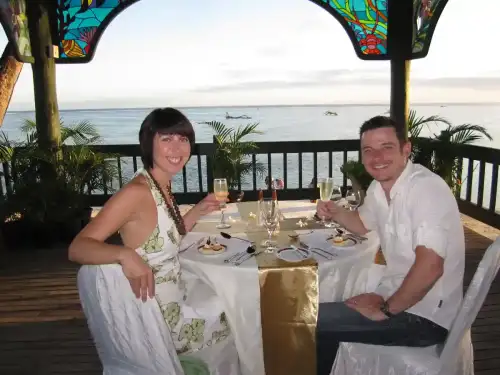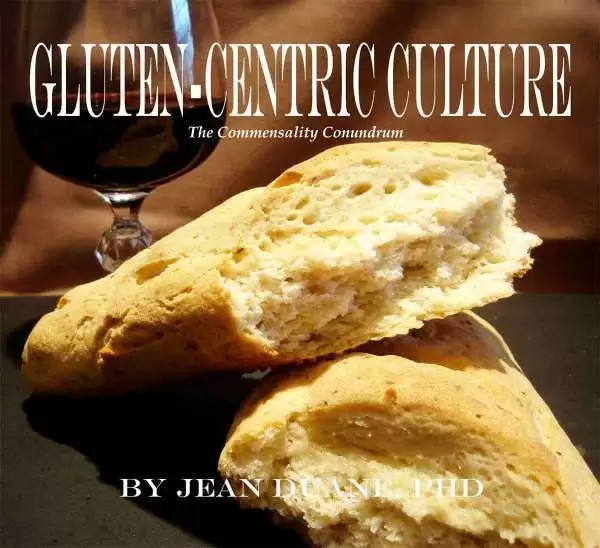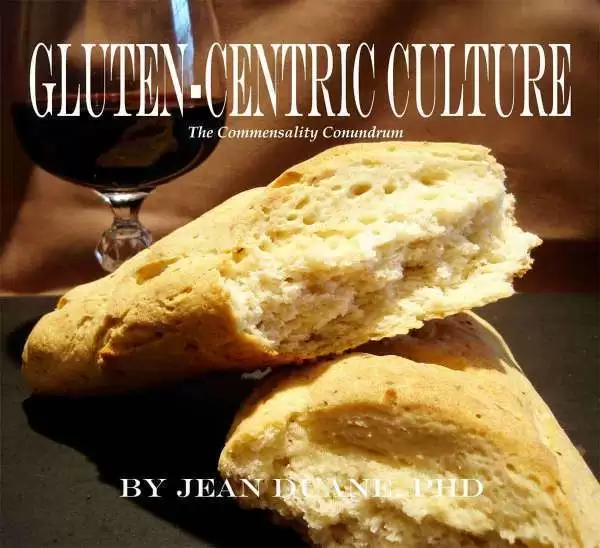Celiac.com 08/05/2025 - Dating can already feel like a vulnerable and complex experience, but when you have celiac disease or gluten sensitivity, it adds a unique set of challenges that most people never have to consider. From deciding when to disclose your condition to managing the risks of shared meals and even kissing, navigating romance while staying safe can feel overwhelming. But it doesn’t have to mean staying home or missing out on meaningful connections.
This article explores how people with celiac disease can date confidently and safely without sacrificing their health—or their social life.
The Hidden Emotional Toll of Dating with Celiac Disease
Celiac.com Sponsor (A12):
While the physical symptoms of gluten exposure are widely recognized—bloating, fatigue, and long-term damage to the small intestine—the emotional toll of managing celiac disease is less visible. Many people report feelings of social isolation, anxiety, and fear of being seen as “difficult” or “high maintenance” when they bring up dietary restrictions.
In dating, these concerns can be magnified. Will they think I’m overreacting? What if they kiss me after eating gluten? Do I mention it on the first date or wait until things get serious? These are all questions that people with celiac disease must weigh carefully, often in situations that are already emotionally charged.
But acknowledging the emotional impact is the first step in taking back control. You deserve relationships—romantic and otherwise—where your health is respected and your boundaries are honored.
Disclosure: When and How to Talk About Celiac Disease
One of the most nerve-wracking parts of dating with celiac disease is deciding when to share that you have it. There’s no universal right answer, but many people find that earlier is better.
If you’re meeting someone through a dating app, a simple note in your profile like “gluten-free for medical reasons” can help set expectations. If you’re going out with someone you’ve just met, bringing it up before the first meal together can prevent awkward or dangerous situations.
When you do disclose, try to be matter-of-fact rather than apologetic. Celiac disease is not a preference—it’s a serious autoimmune condition. You’re not being difficult by protecting your health; you’re being responsible. A good partner will understand and support you. If someone brushes it off or makes you feel bad about it, they’re not someone you want to build a relationship with.
Kissing and Cross-Contamination: The Intimate Risks No One Talks About
One of the most overlooked risks in dating with celiac disease is kissing. Yes—gluten can be transferred through saliva if your partner has recently eaten something containing gluten and hasn’t thoroughly brushed their teeth, rinsed their mouth, and washed their hands. A
While it might feel awkward to bring up, this is a real concern. Many people with celiac have reported symptoms after kissing someone who had gluten on their lips, mouth, or hands, although a recent study has shown otherwise.
If things are heating up and you’re not sure what your date has eaten, it’s okay to pause and have that conversation. A simple, “Hey, just so you know, I have celiac disease and gluten can actually affect me even through kissing if it’s in your mouth,” is direct and clear. Most people will appreciate the honesty—and if they care about you, they’ll be more than willing to help keep you safe.
Dining Out: High-Risk Territory or Opportunity to Bond?
Eating out is one of the trickiest parts of dating with celiac disease. Restaurants often don’t take cross-contamination seriously, and menus can be vague or misleading. But it’s also one of the most common dating activities.
The key to successful dining out is preparation. Choose restaurants with good gluten-free practices and call ahead if needed. Don’t be afraid to ask the server specific questions or even speak with the chef. If your date is supportive, they’ll likely admire your commitment to your health and may even join you in ordering gluten-free.
You can also turn it into a bonding opportunity. Suggest a date that doesn’t involve food, like a walk in the park, a museum visit, or a coffee at a gluten-free-friendly café. Or cook a meal together at home using certified gluten-free ingredients. Many couples find that these alternatives create more meaningful connections.
Navigating Social Pressure and “The Apology Reflex”
Many people with celiac disease fall into what’s been called the “apology reflex”—constantly saying “sorry” for needing to ask questions, send food back, or skip certain activities. But you don’t need to apologize for protecting your health.
In dating, it’s especially important to resist the urge to minimize your needs. Your health is not an inconvenience. If someone makes you feel like it is, that’s a red flag.
It helps to practice confident responses in advance. Instead of saying, “Sorry, I can’t eat that,” try, “I can’t have gluten because of celiac disease—it’s a serious health condition.” Setting boundaries clearly and calmly is one of the most powerful ways to advocate for yourself and educate others at the same time.
When Things Get Serious: Building a Gluten-Free Life Together
As your relationship deepens, the conversation will shift from dating logistics to building a shared lifestyle. This can include things like storing gluten-free and gluten-containing foods separately, making the kitchen a gluten-free zone, and navigating shared travel.
If your partner is open to learning, it’s a great opportunity to grow together. Teach them to read labels, understand cross-contamination, and find safe places to eat. Some couples even go entirely gluten-free at home to make things easier and safer.
Communication is key. It’s not about forcing your needs on someone—it’s about working together to create an environment where both of you feel safe, respected, and supported.
Final Thoughts: Love Doesn’t Require Compromise on Health
Dating with celiac disease or gluten sensitivity may come with unique challenges, but it doesn’t mean you have to give up on love, fun, or intimacy. It just means finding someone who values your well-being as much as you do.
The right partner will listen, learn, and adjust. They’ll see your health needs not as a burden, but as part of what makes you strong and self-aware. And if you’re still searching for that person, remember: advocating for yourself is not only brave—it’s the most loving thing you can do.
Being gluten-free doesn’t mean being alone. It means finding the people who are worth your trust, your story, and your heart.










Recommended Comments
There are no comments to display.
Create an account or sign in to comment
You need to be a member in order to leave a comment
Create an account
Sign up for a new account in our community. It's easy!
Register a new accountSign in
Already have an account? Sign in here.
Sign In Now